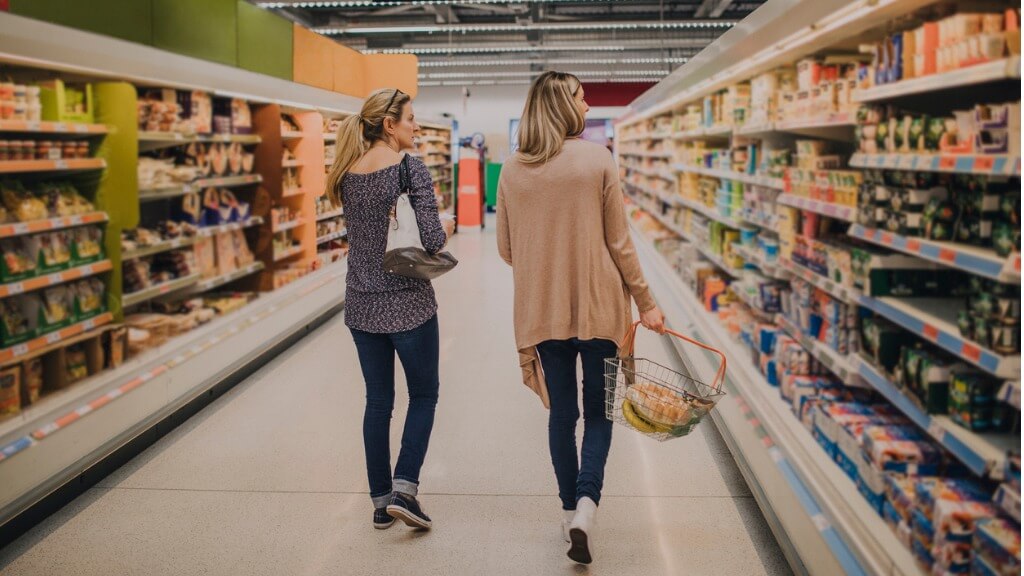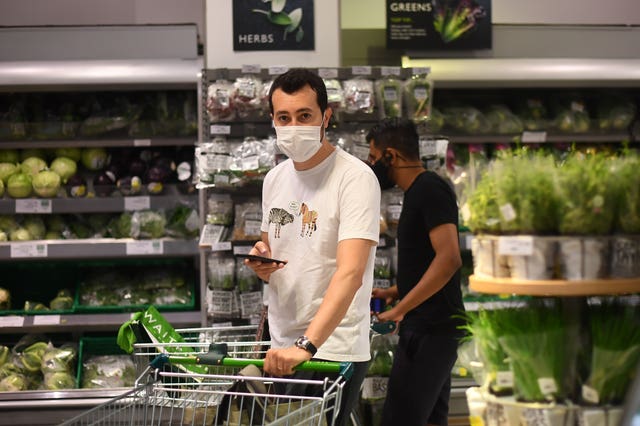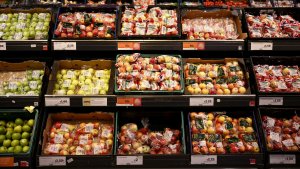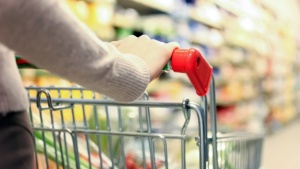The end of Eat Out To Help Out and a 10pm pubs curfew helped sales, including £261m in alcohol sales in four weeks, according to Kantar.
Supermarket Sales Surge But Minimal Signs Of Panic-Buying
The end of Eat Out To Help Out and a 10pm pubs curfew helped sales, including £261m in alcohol sales in four weeks, according to Kantar.

The end of the Eat Out To Help Out scheme and new Covid-19 restrictions introduced last month saw shoppers flock to supermarkets in huge numbers although without the same panic-buying seen in March, according to new data.
The surge came in the four weeks to October 4, with sales increasing 10.6% – above the 9.4% recorded across the 12-week period to October 4, according to Kantar.
With the new 10pm curfew on bars and pubs also coming into effect, alcohol sales in supermarkets rose to £261 million during the past month.

Fraser McKevitt, head of retail and consumer insight at Kantar, said: “Shoppers are moving a greater proportion of their eating and drinking back into the home.
“This is likely a response to rising Covid-19 infection rates, greater restrictions on opening hours in the hospitality sector, and the end of the Government’s Eat Out To Help Out scheme.”
Despite an increase in Covid-19 transmissions and tightening restrictions, there is only limited evidence of consumers stockpiling goods at a national level in the past month, he added.
Some supermarkets had been concerned that, with a second wave, panic-buying could set in.
However, Mr McKevitt said: “The seven days from Monday 21 to Sunday 27 September were the busiest since March, with 107 million trips recorded, but that number was nowhere near the 175 million seen just prior to the first national lockdown.”
There were some signs of concern, with toilet roll and flour sales up 64% and 73% during the final week in September, but this is thought to have been because there were more shoppers in stores, rather than because of stockpiling.
Kantar added that online sales in the past month were up 76% on a year ago, with one in five households ordering groceries via the internet.
The proportion of sales made digitally remains unchanged from last month at 12.5%, suggesting that many shoppers are choosing to stick with deliveries as the pandemic develops.
Ocado continues to be the big winner from the pandemic, with sales jumping 41.9% in the 12 weeks to October 4, with Marks & Spencer’s partnership winning over customers.

But Sainsbury’s, Asda and Aldi all lost out – losing customers to rivals and seeing their market share fall compared with a year ago.
All three increased sales during the 12-week period, but it at a slower pace than their rivals.
Morrisons, Lidl and Iceland all grew their market share, while Tesco, Co-op and Waitrose all saw theirs flat compared with a year ago.
Thanks for signing up to Minutehack alerts.
Brilliant editorials heading your way soon.
Okay, Thanks!

